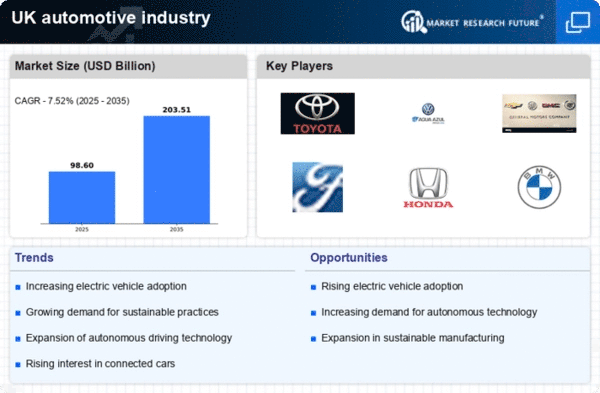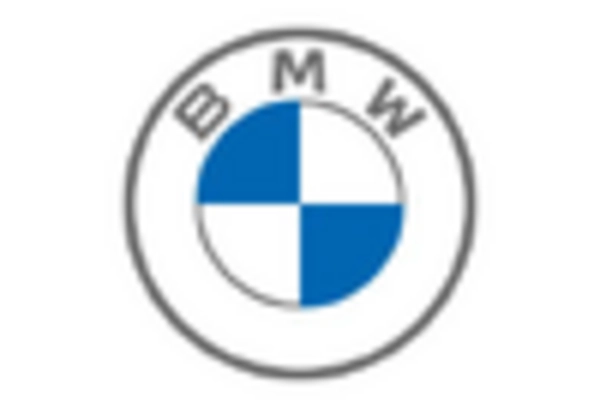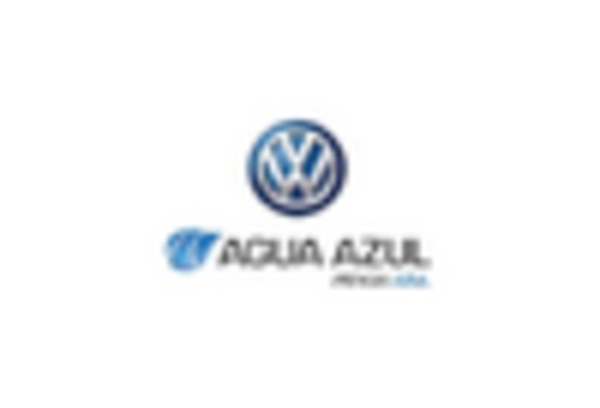Economic Factors
Economic factors play a crucial role in the automotive industry market in the UK. The current economic climate, characterized by fluctuating interest rates and inflation, influences consumer spending power and, consequently, vehicle sales. As of November 2025, the UK economy is showing signs of recovery, which may lead to increased consumer confidence and higher demand for new vehicles. Additionally, the availability of financing options and government incentives for electric vehicle purchases are likely to stimulate growth in the automotive industry market. However, potential economic uncertainties could pose challenges, making it essential for manufacturers to remain adaptable to changing economic conditions.
Regulatory Changes
Regulatory changes are significantly impacting the automotive industry market in the UK. The government has implemented stringent emissions regulations aimed at reducing air pollution and promoting cleaner vehicles. For instance, the introduction of the Clean Air Zones in major cities is compelling manufacturers to produce vehicles that comply with these new standards. Additionally, the UK government has announced plans to ban the sale of new petrol and diesel cars by 2030, further accelerating the transition towards electric vehicles. These regulations not only influence manufacturers' production strategies but also affect consumer purchasing decisions, as buyers become more aware of compliance and environmental impact. Consequently, regulatory changes are a critical driver shaping the automotive industry market.
Consumer Preferences
Consumer preferences are a pivotal driver in the automotive industry market within the UK. Recent surveys indicate that UK consumers are increasingly prioritizing features such as safety, fuel efficiency, and advanced technology in their vehicle choices. The demand for electric vehicles is particularly notable, with a reported increase of 200% in sales over the past year. This shift in consumer behavior is prompting manufacturers to adapt their offerings to meet these evolving expectations. Additionally, the rise of online car buying platforms is changing how consumers interact with the automotive industry market, leading to a more streamlined purchasing process. As preferences continue to evolve, manufacturers must remain agile to capture market share.
Sustainability Initiatives
The automotive industry market in the UK is increasingly influenced by sustainability initiatives. With the UK government aiming for net-zero emissions by 2050, manufacturers are compelled to innovate and adopt greener technologies. This includes the development of electric and hybrid vehicles, which are projected to account for over 50% of new car sales by 2030. The automotive industry market is witnessing a shift towards sustainable materials and production processes, as consumers demand environmentally friendly options. Additionally, the rise in awareness regarding climate change is prompting both consumers and businesses to prioritize sustainability, thereby driving demand for eco-friendly vehicles. As a result, companies that align with these initiatives may gain a competitive edge in the automotive industry market.
Technological Advancements
Technological advancements are reshaping the automotive industry market in the UK. Innovations such as autonomous driving, advanced driver-assistance systems (ADAS), and connectivity features are becoming increasingly prevalent. The market for connected vehicles is expected to grow significantly, with estimates suggesting that by 2025, around 30% of vehicles on UK roads will be equipped with some form of connectivity. These technologies not only enhance safety and convenience but also appeal to tech-savvy consumers. Furthermore, the integration of artificial intelligence and machine learning in vehicle design and manufacturing processes is streamlining operations and improving efficiency. As these advancements continue to evolve, they are likely to play a crucial role in shaping the future of the automotive industry market.
















